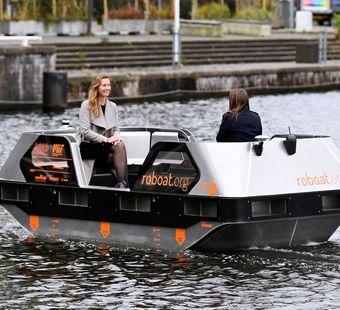Remote working is now front and centre in conversations about economic continuity in the wake of a global pandemic that has led to Malaysia’s partial lockdown.
The Malaysian Employers Federation (MEF) sees the Covid-19 outbreak as an opportunity for companies to assess how working from home can be a workable option for them.
However, many in the public and private sector have found themselves unprepared for remote working, as policies and practices have long lagged behind the technological possibilities to realise a more flexible working landscape.
Flexibility and empowerment
Recent studies have shown that the vast majority of workers would like flexible working options, and that remote workers are actually more productive. Freelancer matching platform, Airtasker, found that remote workers worked 1.4 more days every month, or 16.8 more days every year, than those who were fully based in an office.
Such developments encourage companies to facilitate remote working to drive business growth. For financial software solutions company, Finastra, its telecommuting policy has provided the company with the scale and geographical reach to serve customers effectively, regardless of their size or location.
IT Consultant, Henrik Dahl, has benefited from Finastra’s policy, splitting his time effectively between his native Sweden and Asia, to be where his family needs him most.
“Many of our IT consultants can work from home and we are given the tools and technology to do so,” Dahl says.
“It is business as usual for the company during this Covid-19 outbreak. We get things done, regardless of where we are,” he stresses.
In fact, over the last decade, remote working has slowly started to become the new normal in Malaysia. A study by Regus, a multinational provider of serviced office, revealed that slightly over half (53 percent) of Malaysian executives already work remotely and flexibly, higher than the global average of 48 percent.
While Malaysia does not have an official government position or specific policy incentives on remote working, some government agencies have championed the cause. During the haze outbreak last year, the Ministry of Human Resources (MoHR) urged employers to let staff work from home to ensure their health is not adversely affected. MoHR also pointed out that Malaysian Labour Laws were amenable to remote and flexible working arrangements (FWA).
TalentCorp also advocates for FWA, and provides flexible working hours and place of employment for their staff. Its study joins many others from around the world that shows how FWA contributes to increasing female participation in the workforce. In Malaysia, this accounted for a 7.3 percent increase between 2010 to 2015.
Technical writer and mother, Emily Ismail, attributes her longevity at a leading telecommunications company to its flexible working policies.
“I am the master of my own schedule. In a typical work week, I will plan for two full days of meetings at the office, keeping two more days for content development work at home,” Emily says.
“This helps me work around my son’s school runs and accompany my mother to her medical appointments,” the manager added.
A blended approach
Over the last decade, as FWA has become more common, Malaysian companies reveal a preference for a hybrid approach, providing remote working as an option, rather than the standard for employees.
Marketing and communications agency, Archetype was one of the earliest proponents of remote working in its sector in Malaysia. Employees can request to work remotely as and when the need arises, provided certain key conditions are met. These include job function and level (middle level managers onwards), home internet connectivity and workspace set up, being contactable during official working hours and doing daily check-ins with team members and line managers.
“Flexibility and employee empowerment are the core tenets of our culture,” Senior Director, Hazrina Azizdin, says.
As such, the company has invested significantly in the latest technology to provide flexible working options. This includes powerful laptops for all employees with scheduled maintenance and upgrades, collaborative enterprise software like Slack, Solstice and Zoom to facilitate real-time communications, virtual meetings and teleconferencing as well as enhancing data security and accessibility through Google Drive cloud storage, Mobile VPN and Okta Single Sign-on.
“During the current Covid-19 outbreak, we have instituted a telecommuting policy on a rotational basis for all employees. Our efforts over the years have given us the framework, policy and technology capabilities to implement this quickly, in light of the situation,” she adds.
However, heavy investments in technology are much tougher for SMEs and companies outside Greater Kuala Lumpur. A recent study by SME Corp revealed that while 80 percent of SMEs realised the importance of digital technology, the adoption rate was very low at around 20 percent. As such, the capability, availability and affordability of Malaysia’s wider technology infrastructure is crucial in determining whether remote working can be scaled to more locations and industries.
MEF’s Executive Director, Shamsuddin Bardan, spoke to Free Malaysia Today about the challenges of mainstreaming FWA: “We still have issues with internet connectivity – it’s still a big issue for employers, and this is not conducive to work.
“Once broadband becomes more affordable and stable, I am sure many employers will see working from home as a viable option.”





